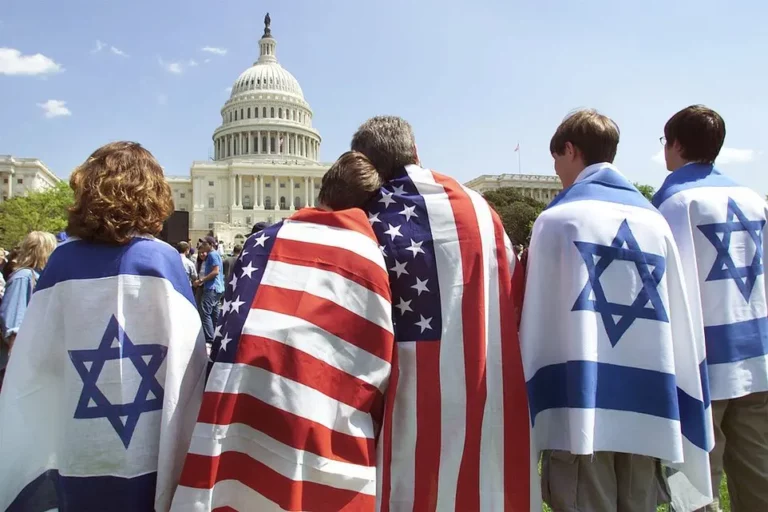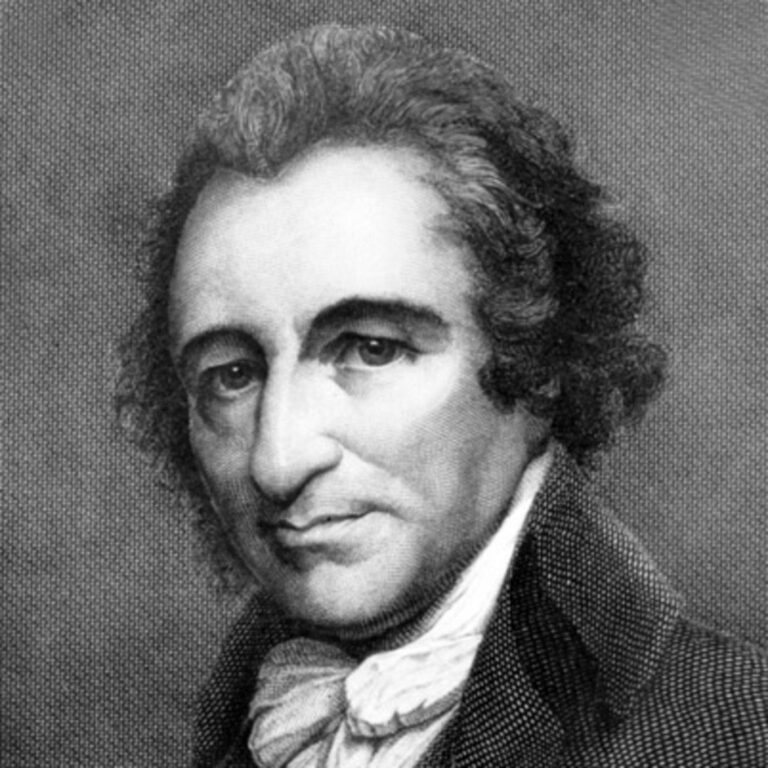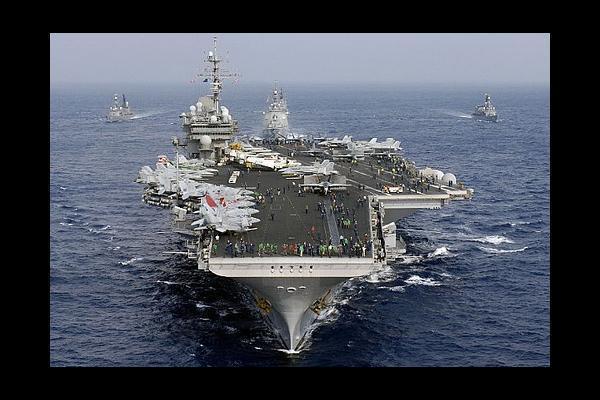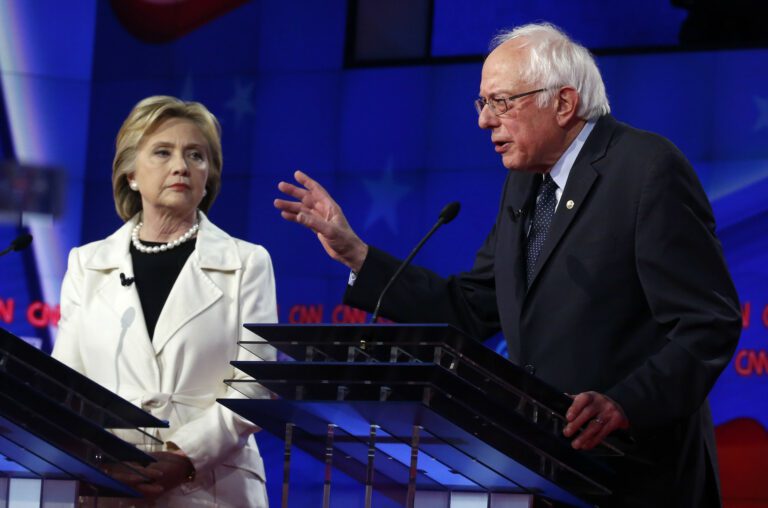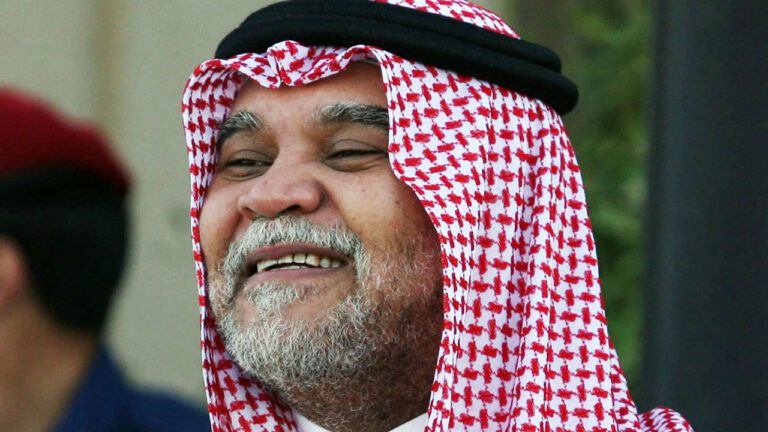This is an episode of Reality Asserts Itself, produced on May 28, 2017. On Reality Asserts Itself, Prof. Alnasseri tells Paul Jay the story of the development of the Iraqi welfare state and the rise of Saddam Hussein as dictator of Iraq.
PAUL JAY: Welcome back to the Real News Network and the Reality Asserts Itself. I’m Paul Jay and we’re continuing our series of discussions with Sabah Alnasseri. Thanks for joining us.
SABAH ALNASSERI: Pleasure.
PAUL JAY: So we left off in the last part, Saddam Hussein’s just coming to power.
SABAH ALNASSERI: Right.
PAUL JAY: You’re 17 years old. You’re in high school in Basra, so talk about the coming to power of Saddam, how it affected your family, and how it affected the country.
SABAH ALNASSERI: Right. I mean the first thing was my older brother was a communist so he was arrested and he was incarcerated. A lot of communists fled the country, went to Moscow or Syria or Europe or Iran. All of a sudden after this opening in the 1970s …
PAUL JAY: Can I just stop for one second because we’re in the United States and here communist is the boogie man and all they want to do is take everything you own and throw in jail and kill you if you wink. What did the communists in Syria want? What did their political program look like?
SABAH ALNASSERI: In Iraq?
PAUL JAY: In Iraq.
SABAH ALNASSERI: In Iraq.
PAUL JAY: Sorry.
SABAH ALNASSERI: Well the communist party, as I said had enormous support within the Iraqi population. Of course because in the Iraqi population, programmatically they settled in the 1970s contrary to the 1950s and ’60s, it was much more anti-capitalist. Not only anti-imperialist but much more anti-capitalist. Working class pays oriented party. They settled in the 1970s for this National Front/Social Democratic type of policies like welfare state with the Baathists. So there was transformation taking place within the communist party from much more radical anti-capitalist to left liberal leaning type of party. Maybe there was some …
PAUL JAY: But the anti-capitalist meant what? Workers ownership, things like this?
SABAH ALNASSERI: As I said they had long been this any more. They settled for higher wages, social security for the working class, pension and benefits and all that right?
PAUL JAY: So by the seventies, it’s not that much different from European Social Democratic Party.
SABAH ALNASSERI: Exactly. Exactly. The most radical part of the communist party, already in the sixties, you know left the party and created their own so-called communist party. In Kurdistan there was a communist party, the so-called, the military wing or something like that. So they were fracturing within the communist party against the leadership of the communist party. So in the seventies again, as I said, this party settled for this welfare state with the Baathists. It was not bad. In effect because as I said, we as working class kids … I used to live in one of the most impoverished working class neighborhoods in Basra, in Iraq, we benefit from this opening and this alliance between the two materially. Like all of a sudden school were for free, books were for free, clothes, you get clothes and everything. Before you couldn’t even afford like buying pencils and pens and so on. Now you get everything for free.
PAUL JAY: This was paid for by the oil riches?
SABAH ALNASSERI: By the … Yes absolutely. The healthcare was for free.
PAUL JAY: This was a result of the nationalization of oil?
SABAH ALNASSERI: Yes. Because all of a sudden Iraq has access to this enormous revenue of the oil especially after 1973 with the oil crisis. The oil prices skyrocketed at that time so all of a sudden Iraq has enormous potential in pursuing national developmental strategy like industrialization and literacy campaigns, all these things. They achieve rapidly in this period of time more than they actually intended to, or what they wished for. Iraq by the end of the seventies was one of the most developed countries in the Middle East and I remember they receive a lot of awards from the United Nations for lets say illiteracy campaign, against mass diseases, against all that.
PAUL JAY: Now this is all before Saddam?
SABAH ALNASSERI: Before Saddam.
PAUL JAY: So in ’79 Saddam comes to power. How does that happen and what’s the attitude of the Americans to that?
SABAH ALNASSERI: Well what Saddam did was once his uncle al-Bakr was in France, he was sick, he pushed against his uncle within the party and declared that he was now the minister president of Iraq. al-Bakr is sick. He cannot take, he cannot continue as president and he like al-Bakr actually delegated all his power to Saddam Hussein which is not true because I think even al-Bakr, his uncle did not trust Saddam Hussein. He was not that right wing leaned figure like Saddam Hussein but I think Saddam Hussein also was supported by the Gulf monarchies at that time, and the US against Iran because the shift in Iran with the revolution in Iran. The Gulf monarchies feared now there would be an export of the revolution, and especially the Shiite population in the Gulf will side with Iran. This will destabilize the whole Gulf region, so Saddam Hussein was the figure that was supported by the Soviet Union, by the US and Gulf monarchies against Iran.
PAUL JAY: Soviet Union or Saudi Arabia?
SABAH ALNASSERI: Saudi Arabia yes?
PAUL JAY: I think you said Soviet Union.
SABAH ALNASSERI: And the Soviet Union, yes.
PAUL JAY: Supported Saddam?
SABAH ALNASSERI: Yes against the revolution in Iran because they were Islamist and so on and they were, again they were dragged into later in a war in Afghanistan because of the Mujahideen and they were supporting the Chibola, the communist government in Afghanistan, the Soviet Union. So they feared this Islamic revolution and so on. Everybody was supporting Saddam Hussein. They sacrificed again their own allies, the communist party, for that matter. What happens is it’s not only people like my brother ending in a prison and so on, but that’s one of my memories as a high school kid. All of a sudden after this opening where you can go in Basra and into the communist party’s offices and openly, read the newspaper. It was much more open political atmosphere. Then in ’79 everything was shut down, so much that even reading or carrying Marxist literature was illegal. So one of my memories of that time was there were few copies of let’s say Lenin’s “What’s to be done?” for instance. So you have four or five copies in the whole province of Basra and you have people now carrying these four or five copies illegally. They cover it with kitchen cover, whatever, but the interesting thing about them, once I saw one of these books, and I think it was “What is to be done,” and I must say at that time I still was not that much into this communist party rigid way of understanding Marxism and so on but I sympathized with them because of my father and my brother and so on. So I used to get the books from the communists. The interesting thing about them, you have one copy carried by maybe 10,000 people, illegally. That scare them, so you can see when you carry a book illegally you are scared. You start sweating, so you can see the fingerprints on these copies, right? Like thousand of them on these copies. It’s interesting to see the history of these illegally transported whatever texts and books on the cover of the book. That really stuck to my mind, this moment. The second one where I actually become politicized, come to my own attention because you know I hated to see my brother every six month in prison, and then out, and then prison. I don’t want this life. It sucks.
PAUL JAY: Because of his political activity he was …
SABAH ALNASSERI: Yeah of course. So what happens is one of my friends at that time, one day I went to his house, to pick him up from his house. His father told me his name was Haldoon, he told me Haldoon died. He had cancer. I said, I just saw Haldoon three days ago, and then he realized I’m good friend of Haldoon and he said, “Come inside, Sabah.” So I went to the room of Haldoon and I saw he used to paint a lot of comics against the Baath party. Like one of them, the peasant plant and the Baath party still were there. A lot of beautiful comics, critique on the Baath party and so on. He said one of his friends, alleged friends, one day came to visit him and he saw this and then he told the intelligence about him. So they came and they take him and he was executed. He was my age, right?
PAUL JAY: 17?
SABAH ALNASSERI: Yes. So that’s when I thought okay. I mean I thought if you were apolitical, if you don’t mix with communist party or Dal party, you’re still safe but I realized at that moment no. If you like it or not, you will be politicized. You will be pushed to that. That was like an awakened moment in my life where I became much more conscious about the political situation at that time. Then we sensed, I remember we had a lot of debate discussion of course illegally that there’s something will happen soon and especially vis a vis Iran so we feared at that time that Saddam Hussein will attack Iran. There was a push. You can see this in the 1980 and there up to the attack on Iran in September 1980. Speeches Saddam Hussein was giving about how the Shiite in Iran tried to infiltrate the Shiite in Iraq and they start arresting thousand and ten thousand of Iraqi family and accusing them of being some sort of Iranian because their families come 300 years ago to Iraq but actually are not Iraqis and throw them out from the country to the border with Iran, similar to what happened in 1939 in the US against the Japanese community. The same thing. We see all these things going on in front of our eyes and we sense that there’s something going to happen vis a vis Iran. We sense that might lead to a war and it happens like in September 1980.
PAUL JAY: With the Americans backing Saddam.
SABAH ALNASSERI: Yes.
PAUL JAY: There’s this famous picture of Rumsfeld together with Saddam.
SABAH ALNASSERI: Right. Later they deliver the chemical weapon with which he attack the Kurds and the Iranian, right? So we say that this is going to war and Saddam Hussein underestimated the potential of the Iranian population. He thought after the revolution the military apparatus was destroyed. They don’t have generals. They don’t have officers. These mullah have no clue about the war so it will be easy, march into Iran, occupy the oil field, especially at the border of Iraq where you have this Arabic community. At that time, maybe today I’m not sure, this community again is marginalized in Iran so it will be easy to win the support of these communities at the border and occupy the oil fields, but he underestimated Iranian nationalism and then he’s stuck in Iran until 1988. The problem is, whatever the Baathists and the communists have achieved in the 1970s was destroyed in the 1980s because of the war.
PAUL JAY: The social safety net, all the free education …
SABAH ALNASSERI: Well the social safety net stays. That’s the interesting thing. You still have the social safety net until 2003. You still have the same constitution and your rights, like for war pension and so on. That’s the interesting thing about it. No even Saddam Hussein dared to change something of the constitution because the Baathist, even his on cliques insisted on these things. For me it was interesting to see the first thing the United States did in Iraq with the support of its allies, the Shiite party, the first thing they did when they introduced a new constitution, the first thing they get rid of was the social rights of the Iraqi people. All these rights you had before were dismantled from the constitution right? The whole document reads like anti-terror text rather than a constitution on the one hand. On the other, a manifesto for privatization, right? That’s the interesting thing that on a cultural, ideological, political level you can say Saddam Hussein and his clique were extremely reactionary etc, but at the socio-economic level and so on, they still sustained these welfare states and safety …
PAUL JAY: Which had come before him and to undo it would have been extremely unpopular.
SABAH ALNASSERI: Right. Like until 2003, the Iraqi population because of this notorious sanctions from 1990 to 2003, you don’t have access to anything. The state used to distribute food and so on, rations to the Iraqi population. You have 32 items on your card. You get rice, sugar, tea, whatever you need for free, from the state. That’s the other thing. This so-called Shiite party and the US, they get rid of, that people don’t have any cards anymore.
PAUL JAY: Saddam comes to power, some say the CIA helped ease the process. At any rate, he’s essentially an American ally. He’s an American ally in the attacks on Iran.
SABAH ALNASSERI: They supported him.
PAUL JAY: So how does he become the enemy of the United States and during this whole period oil remains nationalized.
SABAH ALNASSERI: Yes, yes. Until 2003. Actually until today it’s still nationalized. They couldn’t privatize it … Anyway but what happens is …
PAUL JAY: Well we’re going to get to that.
SABAH ALNASSERI: Yeah.
PAUL JAY: How does Saddam become the big enemy?
SABAH ALNASSERI: What happens, you can say it’s a historical coincidence. It was not planned. After 1988 when the Iraq/Iran War ends, Iraq had enormous debt and especially, mostly to the Gulf states. So the Iraqi were trying to renegotiate this debt and they were saying, you know what? We did this war, among other things to protect you. So this is not really a debt. This is your funding and so on. The other gulf countries, the Saudis and so on, they were mostly okay with it, but the Kuwaitis insisted on their debts and they insisted on the debt in 1989, pressured by the Bush Senior, not to settle for an agreement with the Iraqi, escalate the conflict with the Iraqis. Why? Because I think in 1989, 1990 that the time of the breakdown of the Soviet Union, that’s the moment where the US felt it is time to have a physical presence in the Gulf region, not just having some whatever ships in the Gulf but have military bases all over the Gulf region so they wanted to escalate the conflict with Iraq. They knew that Saddam Hussein with his nationalist, militarist mindset and with this enormous debt against Iraq and there was rebellion within the army against Saddam Hussein, fighting for eight years for war that didn’t serve any interests of the Iraqi people, so he was in a crisis. They knew the only way out for Saddam Hussein is to create a new war, to engage Iraq in a new war and in this case, the escalation of the conflict with the Kuwaitis was part of the scenario.
PAUL JAY: So they helped suck him into it.
SABAH ALNASSERI: Exactly. Drag Iraq into the new war.
PAUL JAY: There’s this story of the American ambassador going …
SABAH ALNASSERI: All this fabrication.
PAUL JAY: Going to Saddam and saying if you go after Kuwait there won’t be any big repercussions.
SABAH ALNASSERI: Right. The same fabrication just like the weapon of mass destruction 2003, the same lies. So then you have this situation where the United States for the first time since the Second World War, they have the capacity to have military bases in Saudi Arabia, all over the place. They didn’t have this before and nobody dared, even these Gulf monarchies to have physical military presence of US military bases in their countries, fearing that their population would be against it and rightly so because there was a lot of resistance against it. Bin Laden at that time for instance, you know he told the Saudi king, you know you don’t need the American troops to come to Saudi Arabia. I can mobilize fighters, as many as you want, and we can kick out the Iraqis from Kuwait, right? Here you have disagreement between the US, the Saudi and Bin Laden after they were an ally and you have also a disagreement between the US and Saddam Hussein who used to be their allies. But now the US needed these opportunities to have a physical presence in the region. That’s why Saddam all of a sudden become the absolute evil. Bin Laden because the absolute evil and so on. So it was a historical coincidence. Like if the Soviet Union did not break down, 1989/90 we wouldn’t know what would have happened, which way things would have gone. It was mostly, it was historical coincidence, and you can still see this in 1991 when the United States did settle for Saddam Hussein again and they had an agreement with him, right? Because they, when they saw there was a spontaneous rebellion against Saddam Hussein in March 1991, mostly …
PAUL JAY: Shia rebellion mostly.
SABAH ALNASSERI: It was not Shia. That’s the point. That’s the interesting thing. What happens is the first, the soldiers who came back from Kuwait, they were kicked out from Kuwait, the first thing they did once they entered Basra, this is the province at the border of Kuwait. Once they entered the city, they start shooting at this portrait of Saddam Hussein spontaneously because they were, they were outraged. They had eight wars with Iran for nothing. Now again a war against Kuwait for nothing. They were so outraged they start shooting. All the people, men, women, kids, everybody at once spontaneous on the street and start rebelling against Saddam Hussein. This rebellion spread in no time in other provinces of Iraq. What happens is, and that’s the most tragic moment of this spontaneous rebellion of the people. You have all of a sudden some conservative Shiite forces and militias come from Iran, especially [inaudible] and the so-called, the revolutionary council, the Supreme Revolutionary Council, coming from Iran and trying to give the whole revolt a Shiite sectarian clothing. What they did start massacring Baathists, killing Baathists, that didn’t happen before. People didn’t kill either traffic police because he was Baathist. They start massacring Baathists and start making sectarian thing. That’s where the United States felt you know what? This is going too much. That will be Iran de facto. If they win Iran would be in Iraq so we settled for Saddam Hussein. Again they negotiate the …
PAUL JAY: It saves Saddam.
SABAH ALNASSERI: And contrary to the agreement they have with Saddam Hussein, that Iraq shouldn’t use heavy weapons and air power, they allowed Saddam Hussein to use the air power.
PAUL JAY: Against the rebellion.
SABAH ALNASSERI: Against the rebellion, right. That was one tragic moment at that time where you have the tendency there, especially from Dal or Shiite party to sectarianize politics in Iraq. It didn’t work. It worked in 2003 with the Bush administration.
PAUL JAY: Okay. In the next segment of our interview, we’re going to continue this discussion with Sabah Alnasseri and pick up again sort of intertwining where he was in all this and his father and brother and we’re going to get up to this again fight over of course Iraqi oil. Please join us for the next segment of Reality Asserts Itself.
Never miss another story
Subscribe to theAnalysis.news – Newsletter
“Sabah Alnasseri is a Professor of Middle East Politics at York University, Toronto, Canada. Born in Basra, Iraq, he earned his Ph.D. at the Johann-Wolfgang Goethe University in Frankfurt, Germany. His publications cover topics in political economy; Marxist state theory in the tradition of Gramsci, Poulantzas and Althusser; regulation theory; and Middle East politics and economy.”







